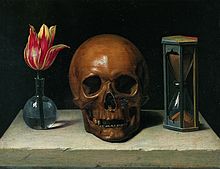As a paranormal mystery writer, I’m often ask why my books are so bloody and scary. Why, they wonder, am I so fascinated and seemingly obsessed with dead bodies? Can’t I write about something more cheery and happy? Indeed, many people think that my book shelves are lined with horror novels and stories of the macabre.
The reality is, my literary fascination for dead bodies comes from reading murder mysteries and not horror books. If I’m pressed, I would say it’s my favorite type of genre fiction. My favorite form of binge entertainment is to find a series of murder mysteries and devour them. I’m constantly looking for new detectives, new writers and new variations on the basic murder story themes. This summer, I discovered the Longmire series, centered on a Wyoming sheriff who solves murders in his county. Bonus: It’s also a tv series on Netflix.
Why do I love murder mysteries and fictional dead bodies? There are many reasons, but mostly because the genre makes us take moral issues seriously. When someone is killed in a murder novel, the subsequent investigation exposes the complicated passageways of the human heart. As the great mystery novelist P.D. James wrote through her legendary character Adam Dalgliesh, murder doesn’t allow for any privacy. Or, to put it another way, you can’t ignore a dead body. It must be explained. It demands to be dealt with and understood. Why and how did it get there? Who, if anyone, is to blame? And even more important, what are the consequences for everyone involved? What about the questions of fairness, God’s role and the unimaginable grief of those left behind?
A dead body tells plenty of tales in the reactions of people still alive.
In the Old Testament and Gospel readings for Sunday, the Bible shoves two dead bodies in our faces to makes us pay attention. The prophet Elijah gets the full brunt of the widow’s anger and grief. She can’t understand why the man of God would allow such a thing. How could he repay her sheltering of him with this horrific tragedy? Elijah turns and vents to God, giving the Lord a full blast of prophetic anger.
When Jesus and his apostles approach Nain, they run into a funeral procession. This wasn’t your sanitized, Grim Reaper and Sons funeral home memorial service. People wept openly, men and women ripped their clothes, and the grief could be heard for miles.
In both cases, the women faced serious consequences from the deaths of their only sons. In those days, if a woman didn’t have men to take care of them, it wasn’t as easy as going back into the work force. Women were usually at the mercy of family. And if they didn’t have family, they would often be forced into slavery, prostitution, or some other form of forced situation. And, believe it or not, that was the best they might hope for, as death by starvation was a very real possibility. There is a real terror and sadness in these deaths. They faced the implications of a dead body and didn’t shy away from it.
We sanitize death in our culture. Many people think that we’ve come desensitized to death because we see so much violence in the media. But in reality, we’ve become jaded because we sanitize death. The dead are lain to rest in funeral homes with terrible grandma furniture and the bodies are painted in unnatural ways. Many of us forego looking at the body all together and have “life celebrations.”
We do this, many psychologists feel, to protect ourselves from thinking about our own deaths. This, I think, is only partially true. But, maybe not for the reasons we think. The reality is, deep down, we hope that death is the hardest thing we have to face. If we really thought about it, if death is all there is, if we were really destined to be a piece of rotting meat, then really, what’s all the fuss? Why avoid? Oddly, if death is the end, it should be very comforting. No more suffering. No more worrying about God. No more worrying about life. Just nothing. The end.
But, Elijah and Jesus don’t allow for this sort of comfort. And this should unsettle us more than just an ordinary dead body. They raise the dead. And when they do, they disrupt everything. As the Misfit says in Flannery O’Connor’s story,
(Jesus) He shouldn’t have done it. He thrown everything off balance. If He did what He said, then it’s nothing for you to do but throw away everything and follow Him, and if He didn’t, then it’s nothing for you to do but enjoy the few minutes you got left the best way you can by killing somebody or burning down his house or doing some other meanness to him. No pleasure but meanness,” he said and his voice had become almost a snarl.
See, dead bodies are “natural.” Dead bodies that are alive indicate something else is beyond what we can see. They force us to see our naturalistic world isn’t all there is. Indeed, it means something else is, and it’s more powerful. That it might be a person who created the world, and He might demand something from us.
This, then, is the real reason we avoid death. It’s not the end, and we’d rather not think about that.













